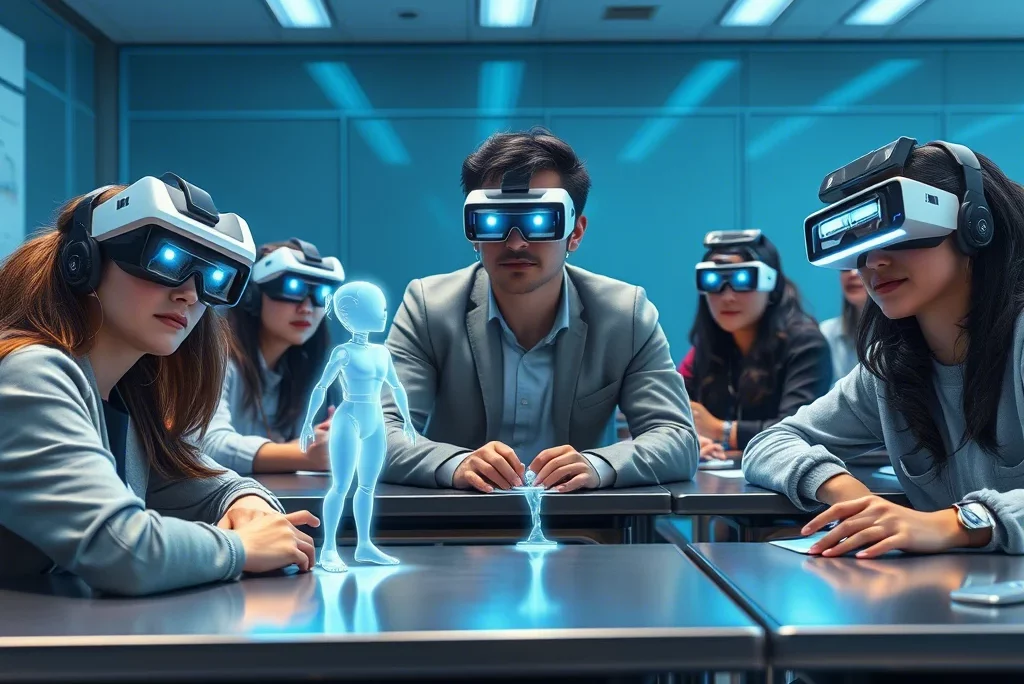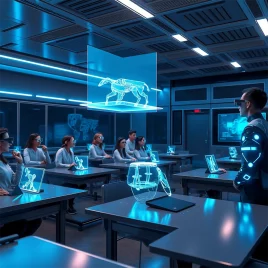In recent years, AI-powered tutors and virtual assistants have transformed the way students learn and interact with educational content. With the rapid growth of AI in education, students and teachers alike are experiencing a shift toward more personalized, accessible, and efficient learning experiences. But how exactly do AI tutors work, and what does the future of education look like with their increasing role?
How AI Tutors Work
AI tutors leverage machine learning, natural language processing (NLP), and vast amounts of educational data to deliver personalized learning experiences. They can analyze a student’s learning patterns, strengths, and weaknesses to create customized lessons that adapt in real-time.
AI-Powered Virtual Assistants in Learning
Virtual assistants, like chatbots and AI tutors, guide students through lessons, answer questions, and provide instant feedback. Unlike traditional tutoring, AI tutors don’t rely on a one-size-fits-all approach but rather adapt based on the learner’s needs.
Real-Time Feedback and Adaptive Learning
One of the most significant advantages of AI tutors is their ability to offer instant feedback. If a student struggles with a concept, the AI adjusts the difficulty level or suggests additional resources to reinforce understanding.
Benefits of AI Tutors in Education
Personalized Learning Experience
Every student learns at a different pace. AI tutors tailor lessons based on individual progress, ensuring that no student is left behind or held back by a fixed curriculum.
Accessibility and Inclusivity
AI tutors provide learning support for students with disabilities, offering features like text-to-speech, voice recognition, and real-time translations. This technology also helps bridge the education gap for students in remote or underprivileged areas.
24/7 Availability
Unlike human tutors, AI tutors don’t have schedules—they’re available anytime, anywhere. Students can access lessons and receive help whenever they need it, making education more flexible.
Immediate Feedback and Assessment
Rather than waiting for teachers to grade assignments, AI tutors provide instant assessments, helping students identify knowledge gaps and improve their performance faster.
AI Tutors vs. Human Teachers
Can AI Replace Teachers?
While AI tutors are powerful, they cannot replace the human connection and emotional intelligence that teachers bring. Instead, AI acts as a supplementary tool, assisting teachers by automating administrative tasks and offering personalized support to students.
AI in Different Educational Settings
AI Tutors in Schools and Universities
Many institutions are integrating AI tutors into their curriculum to support students with additional practice, homework assistance, and test preparation.
AI for Professional and Skill-Based Learning
Beyond schools, AI-powered tutors are being used in corporate training programs to help employees learn new skills, keeping them competitive in the workforce.
Challenges and Ethical Concerns
While AI tutors offer numerous benefits, they also come with challenges:
- Data Privacy: AI tutors collect and analyze large amounts of student data, raising concerns about security and misuse.
- Overdependence on AI: Students may become too reliant on AI, reducing their problem-solving skills and independent thinking.
- Bias in AI Algorithms: AI systems must be carefully designed to avoid biases that could impact learning outcomes.
The Future of AI in Education
With advancements in AI, we can expect:
- Smarter virtual classrooms that offer real-time language translation and adaptive course materials.
- AI tutors that simulate real-life interactions, making learning more engaging.
- Better integration of AI and human teachers, ensuring a balanced, technology-enhanced education.
Conclusion
AI tutors are revolutionizing education by making learning more personalized, accessible, and efficient. However, they are not meant to replace teachers but to enhance the learning experience. As AI continues to evolve, the future of education will likely see a harmonious blend of technology and human interaction, creating a smarter and more inclusive learning environment.
FAQs
1. Can AI tutors replace human teachers?
No, AI tutors serve as supplementary tools to assist teachers, but they lack the emotional intelligence and creativity of human educators.
2. Are AI tutors effective for all subjects?
AI tutors excel in subjects like math, science, and language learning, but creative subjects like arts and literature still require human guidance.
3. How do AI tutors provide personalized learning?
AI tutors analyze student performance and learning styles to adapt lessons in real time, ensuring a customized experience.
4. Is AI in education safe and private?
Most AI-powered learning platforms implement strict security measures, but concerns about data privacy and misuse remain.
5. How can schools implement AI tutors?
Schools can integrate AI tutors through educational platforms, interactive learning apps, and AI-powered virtual assistants to support both students and teachers.
Please don’t forget to leave a review.






